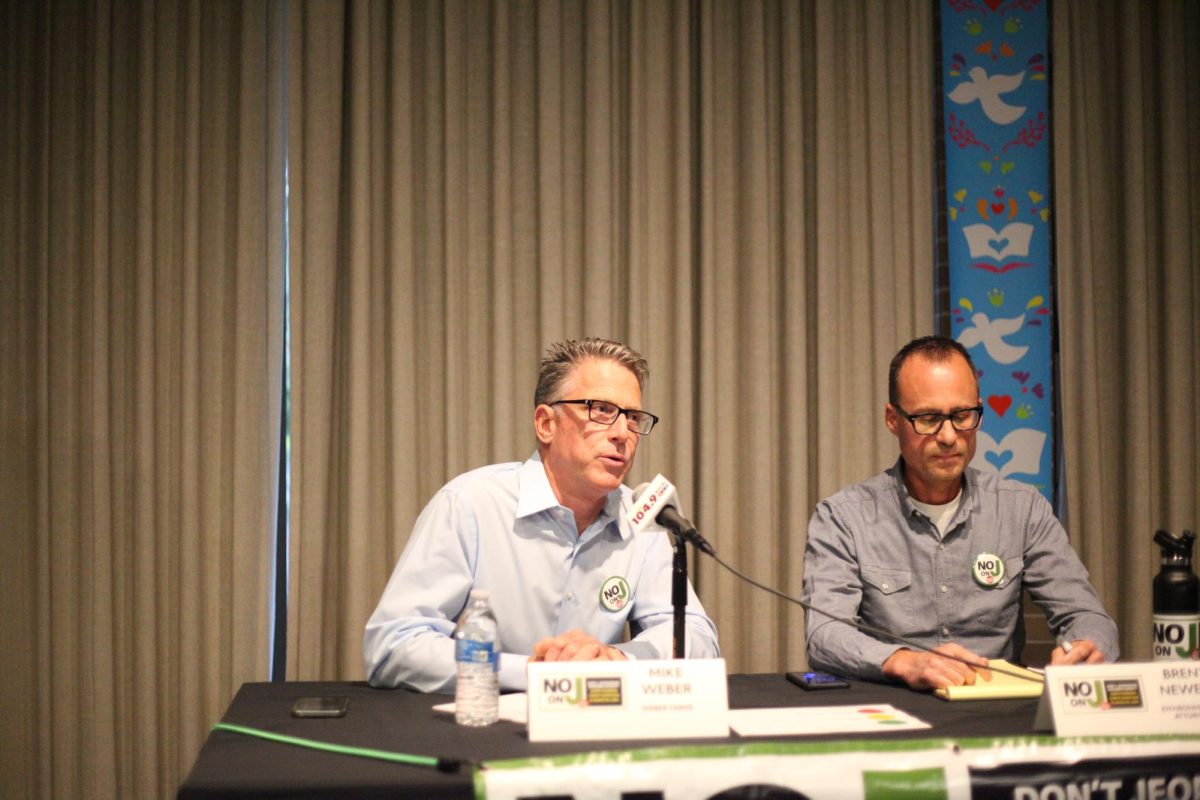Sex Signals is slowly becoming one of the most popular sexual assault prevention programs on school campuses, and for good reason. Catharsis productions sends highly trained educators to military bases, corporate agencies and college campuses, aiming to make even the smallest difference along the way. The charismatic duo of Anthony DiNicola and Hilary Williams are just two of the many educators who are involved in this engaging program.
On Wednesday, they delivered a light hearted yet informativeperformance involving issues such as rape culture, gender stereotypes, racial discrimination and violence. Most people find it hard to discuss such triggering topics, but bringing them out into the open and discussing them in a safe environment leads to more awareness and responsiveness within a community.
During their first improv, they discussed gender stereotypes and asked the audience how they should have their characters act, which led to a discussion about slut shaming and the countless double standards that are ingrained in our society. “You’re not entitled to have sex with everyone who is nice to you. If I did I would never leave Target,” Williams said. When asked what girls get called when they try hard to be pretty or sexy, the audience quickly responded with “sluts.” This is a sad but true realization that both men and women alike are held accountable for.
“The rules are too restricting, we can’t win,” said Williams. Before starting their performance, they asked the audience to look under their chairs to which they found an exceptionally crisp piece of red construction paper marked with the word “STOP.” They urged those who felt as though the victim were in potential danger to raise the sign during the set. Following this, a small discussion would be held to analyze why certain actions were inappropriate.
DiNicola led the topic from gender stereotypes to discrimination by presenting the question, “Who’s more often hurt by stereotypes?” To which the audience responded, “minorities.” DiNicola added, “When we label someone as a minority whether they’re black, lesbian, gay, bi, trans, we start marginalizing them. It’s important that we look at the terms we use.” Williams joined in to say, “Stereotypes often create bias which then creates prejudices.” Acknowledgement and understanding of these issues is important in order to prevent taking stereotypes for granted.
Their most powerful piece was the staged interview of an accused rapist who failed to see the error in his ways. One can only imagine the amount of red “STOP” signs that rose into the air like a crowd wave.
The act was set in an environment of a college party between friends in order to show that not every rape is the stereotypical “guy jumps out of a bush in a park and attacks a young blonde girl” scenario. The importance of showing the diversity in harmful situations such as these is extremely vital in raising awareness of the reality of rape. The subject of consent was undeniably the most important issue of the skit, emphasizing the importance of communication during sexual escapades.
DiNicola brought up how satisfied he was with the fact that California is a “ yes means yes” state, meaning the partner has not given full consent until saying“yes.” Although this is a definite achievement, he also expressed that the fight is long from being over, mentioning his disgust with company Budweiser following their bottle slogan, “it takes the no out of the situation” which was soon shut down after its release.
DiNicola and Williams stressed that a majority of rapes go unreported despite the fact that 1 in 5 women are, at some point, subjected to rape, and only 1 in 10 report it. These victims don’t come forward because they are worried they won’t be believed, or feel as though the legal system would fail them. It is crucial that victims of these horrendous adversities know there is help out there.
Andrew Kerlow-Myers, school Psychologist, sat in on the event in order to provide support to students. “In terms of crisis advocacy, [CAPS] is available…to provide information and support students in deciding about reporting, helping them locate on and off campus resources…obtaining restraining orders, having a forensic medical exam, assisting them with contacting professors to make arrangements regarding missed classes, and contacting housing if they need to move their room in order to feel safe,” said Kerlow-Myers.
The goal of Sex Signals is for viewers to take something away from the acts, including thoughts about cultural gender roles, accountability for crime, importance of consent, and safe communities. The powerful messages that they spread are topics that need to be more universally discussed in order for society to advance and prevent people from falling victim to these kinds of behavior.

































